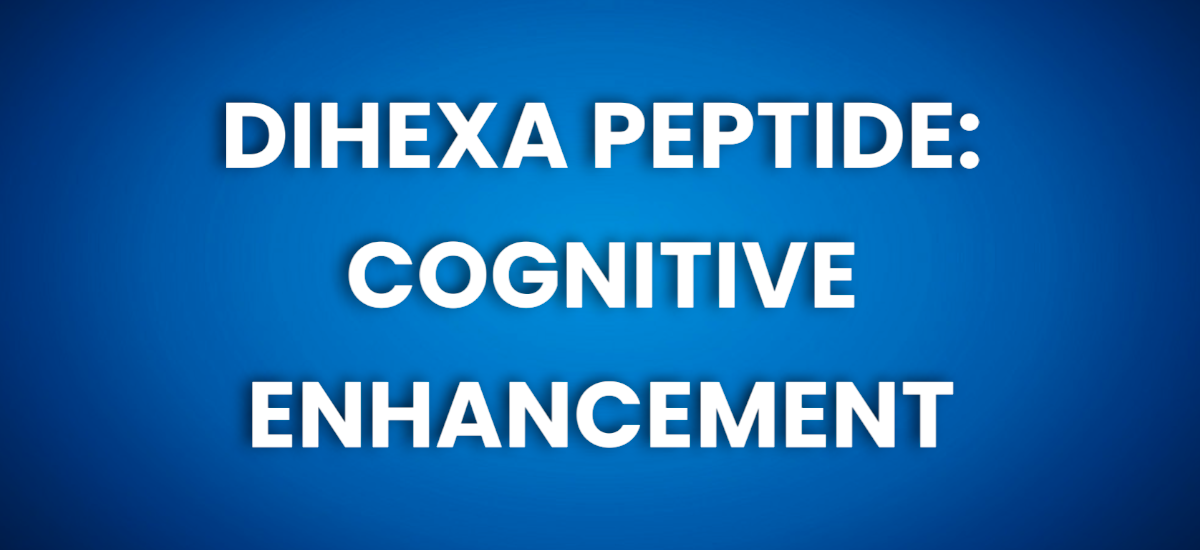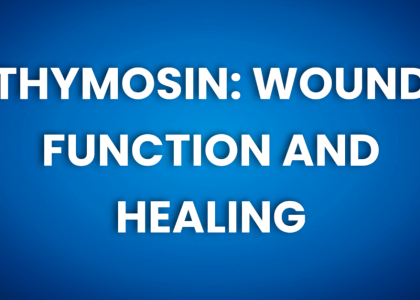Dihexa could be key in advancing research around neurodegenerative diseases like Alzheimer’s or Parkinson’s and enhancing cognitive function [1].
Understanding Dihexa: A Comprehensive Overview
Dihexa, a research chemical known scientifically as N-hexanoic-Tyr-Ile-(6) aminohexanoic amide, was originally developed by the University of Washington [2].
The roots of Dihexa can be traced back to its predecessor, Angiotensin IV (AngIV). AngIV showed potential for treating Alzheimer’s and other neurodegenerative conditions. However, there were some limitations like short half-life and inability to cross the blood-brain barrier effectively which led researchers towards finding more efficient alternatives [3].
This quest resulted in the development of Dihexa. It’s designed to combat neurodegeneration on a molecular level by enhancing synapse formation. Not only does it have an impressively long half-life but also shows high brain penetration ability making it quite promising for further study [3].
The Mechanism of Action of Dihexa
Dihexa, a potent peptide known for its role in neurological research, works on the molecular level. It’s designed to mimic a natural process that occurs within our brains [4].
Our brain cells communicate using synapses – think of them as bridges between neurons. When these bridges are strong and numerous, we experience better memory and cognitive function. But diseases like Alzheimer’s can weaken or destroy these bridges [5].
This is where Dihexa steps in. Its primary job is to build new synaptic connections between neurons and promote neurogenesis [4].
To do this effectively, Dihexa binds itself with an enzyme called hepatocyte growth factor (HGF). HGF has been associated with the generation of fresh neurons, which can have a great effect on brain wellness [4].
- Dihexa stimulates HGF activity [4],
- this leads to increased production of c-Met receptors [4],
- which ultimately results in enhanced neural connectivity [4].
The Potential of Dihexa in Neurological Research
Dihexa shines is neurodegeneration. Scientists have observed that it can potentially stimulate the growth and repair of neurons. This suggests that Dihexa could be a powerful tool in managing conditions such as Alzheimer’s and Parkinson’s, which require healthy neurons for successful treatment [1].
Dihexa’s ability to strengthen neurons means better cognitive function. This could mean sharper memory recall or quicker problem-solving skills [1].
Safety Profile and Side Effects of Dihexa
Preclinical investigations have revealed few adverse reactions with short-term utilization. But keep in mind, these tests are done on lab animals which doesn’t guarantee human compatibility.
In animal models, there were few noticeable adverse reactions during testing periods. These included slight weight loss and minor behavioral changes like increased activity levels.
Future Prospects of Dihexa in Research
The initial studies have shown that Dihexa could significantly boost cognitive function by enhancing synapse formation in the brain. This makes it an exciting area to watch out for future research into neuroplasticity, memory enhancement, and of course diseases like Alzheimer’s.
FAQs About Dihexa
Dihexa is a cognitive enhancer used to improve mental stamina and certain cognitive functions. It has been studied for its potential benefits in overcoming memory and motor dysfunctions, particularly in cases of neurodegenerative diseases like Alzheimer’s disease and amyotrophic lateral sclerosis [1].
Dihexa is derived from Angiotensin IV, a peptide, and has been studied for its ability to cross the blood-brain barrier and promote neural precursor cell proliferation, functional synapses, and cerebral blood flow [3].
Dihexa has shown potential benefits in improving memory, problem-solving skills, and interpersonal abilities by augmenting synaptic connectivity and lowering harmful chemical reactions. It has been researched in animal models and has demonstrated effects as cognitive enhancer by improving long-term memory capacity and brain health. [1]
Dihexa peptide is legal for medical use in the United States, but it is not approved for over-the-counter sale. It is also illegal to use Dihexa peptide to enhance athletic performance.
Conclusion
Scientific Research and References
1. Sun, X., Deng, Y., Fu, X., Wang, S., Duan, R., & Zhang, Y. (2021). AngIV-analog dihexa rescues cognitive impairment and recovers memory in the APP/PS1 mouse via the PI3K/AKT signaling pathway. Brain sciences, 11(11), 1487.
2. Weiss JB, Phillips CJ, Malin EW, Gorantla VS, Harding JW, Salgar SK. Stem cell, Granulocyte-Colony Stimulating Factor and/or Dihexa to promote limb function recovery in a rat sciatic nerve damage-repair model: Experimental animal studies. Ann Med Surg (Lond). 2021 Oct 8;71:102917. doi: 10.1016/j.amsu.2021.102917. PMID: 34703584; PMCID: PMC8524106.
3. McCoy, A. (2010). Pharmacokinetic characterization of angiotensin IV analogs with therapeutic potential for cancer and dementia. Washington State University.
4. Wright, J. W., & Harding, J. W. (2015). The brain hepatocyte growth Factor/c-Met receptor system: A new target for the treatment of Alzheimer’s disease. Journal of Alzheimer’s Disease, 45(4), 985-1000.
5. Meinertzhagen, I. A. (2010). The organisation of invertebrate brains: cells, synapses and circuits. Acta Zoologica, 91(1), 64-71.






